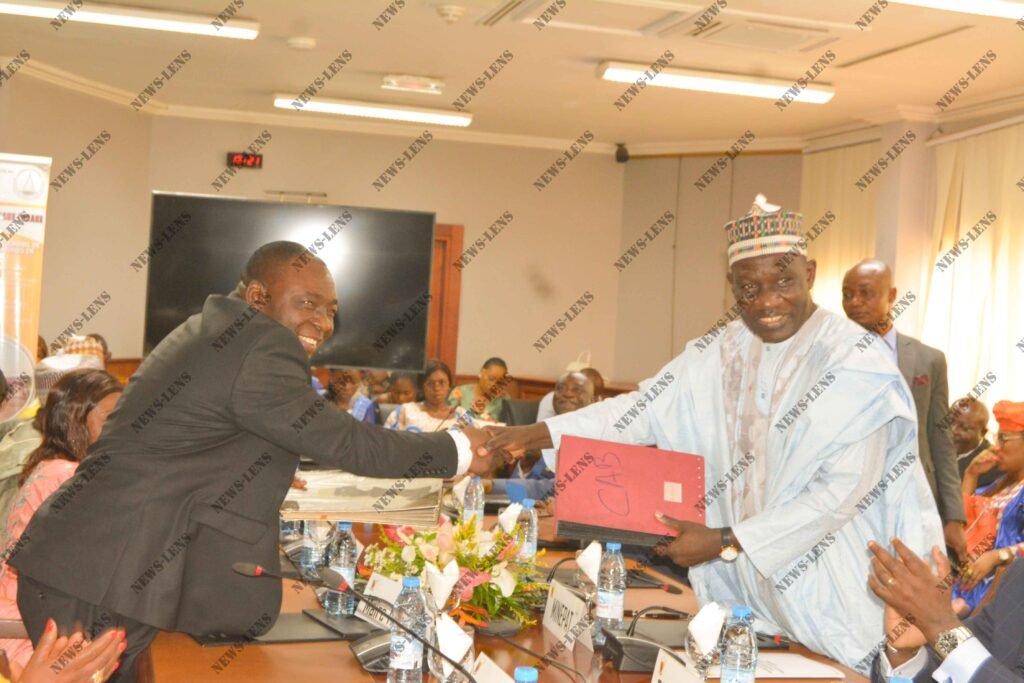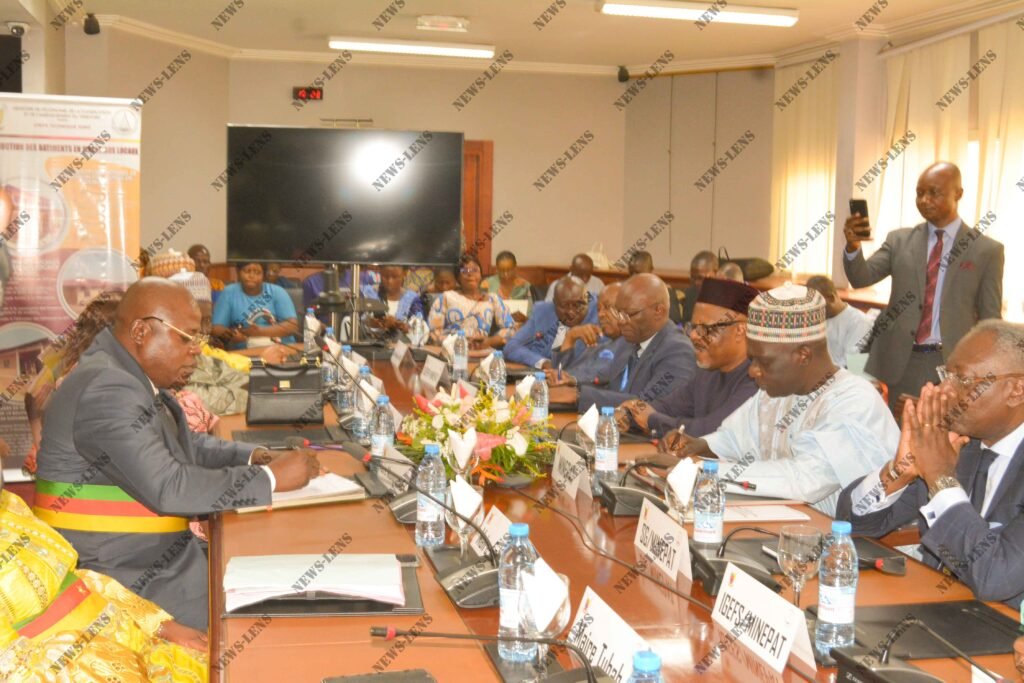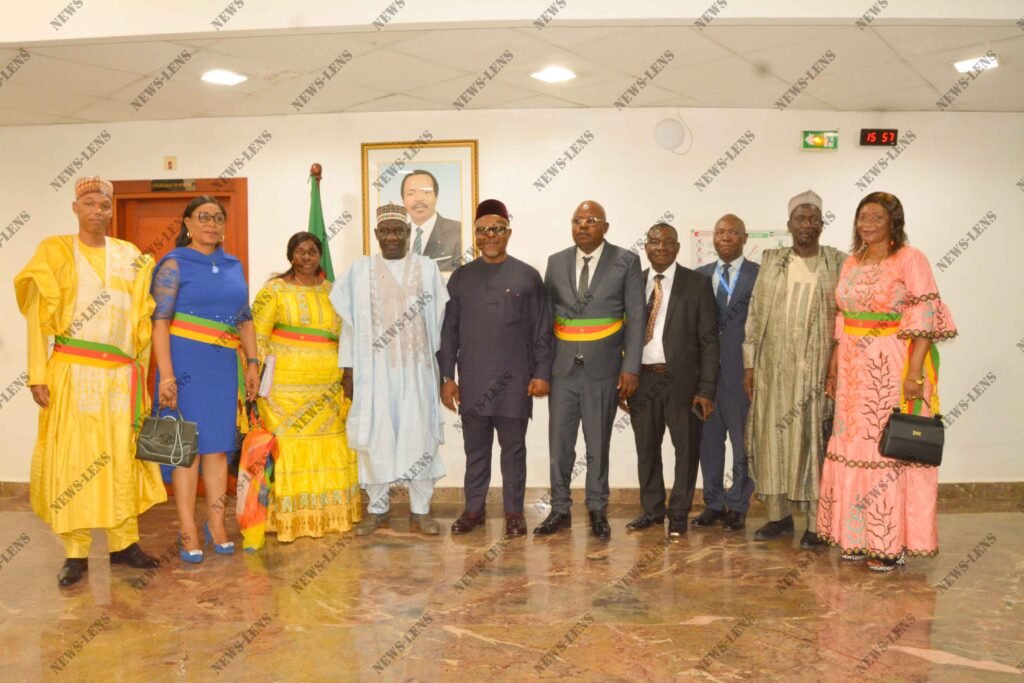By Jacqueline Nyingchia
The Ministry of Economy, Planning, and Regional Development (MINEPAT) and seven councils drawn from the national territory have signed a partnership agreement aimed at providing and maintaining infrastructures in their respective municipalities.
This outcome resulted from a partnership agreement signed on February 29 in Yaounde. Minister Alamine Ousmane Mey represented MINEPAT, while mayors from the seven municipalities signed on behalf of their councils.

The partnership was signed in the presence of the Director of the International Labour Office in Cameroon. The seven councils include Fokoué, Kribi I, Nkongsamba II, Ngaoundéré III, Nitoukou, Touroua, and Tubah.
During the signing ceremony, Minister Ousmane Mey said, the partnership provides an opportunity to celebrate the initiative aimed at promoting highly intensive work to facilitate an inclusive development process.According to the Minister, the seven councils will benefit from an allocation of FCFA 2.25 billion.
“This will lead to the construction of social housing, pavement of roads, schools, and stores in line with the expectations of the local population. The seven represented here are testimonies of the government’s commitment to support the decentralization process,” Minister Ousmane Mey stated.
Regarding the selection of the seven councils, Minister Ousmane Mey emphasized that they were chosen based on a rigorous approach in line with pertinent criteria. He urged the mayors to collaborate closely with the Labour-based Technical Unit and demonstrate that this initiative delivers the expected results for both themselves and the population they serve.

Adrienne Demenou, Mayor of Fokwe, speaking on behalf of the mayors, appreciated the partnership, highlighting the positive collaboration between MINEPAT and the councils, which aims to enhance the decentralization and local development processes.
“Our projects focus on constructing municipal buildings, roads, and various other infrastructure developments. Councils are requesting that these projects are tailored to meet their specific needs and address emergencies within their jurisdictions. Rather than a uniform set of projects, we aim to undertake initiatives that reflect the diverse needs of the local population in each area,” Adrienne Demenou said.
Mayor Tanjong Martin of Tubah in the Northwest Region noted that it would create job opportunities for youths in the area, contributing to peace amidst the crisis.
The Tubah council is embarking on the production of ecological bricks. These bricks are manufactured without cement, using only plastic and sand, making them more durable than traditional tar materials for road construction. As a result, we plan to produce and utilize these bricks to pave 1050km of roads within the municipality

The partnership represents a concrete implementation of one of the orientations of the National Development Strategy 2020-2030 (SND30), specifically the systematization of the HIMO approach with the objectives of infrastructure development and generating temporary income for disadvantaged households.
The selected projects have undergone preliminary studies and are expected to generate 1,520 direct jobs, develop technical skills in construction and public works, promote local unskilled labor, and maximize the use of available materials in each municipality.